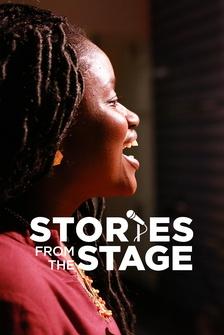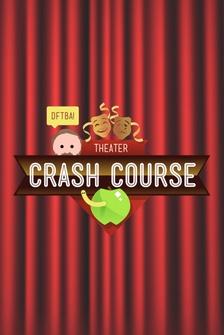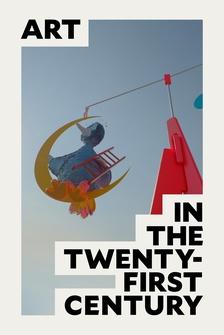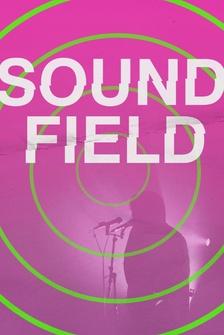CHRISTIAN: This is the bottom of the harmony.
This is the ground, everything comes out of the ground.
ROBERT: Mingus is John Coltrane, Mingus is Kendrick Lamar.
JAMES: He let you know what was in his heart, he let you know joy, he let you know great pain.
CHARLES: Pull your knife out, we're both gonna die...
Right here.
KEKI: I thought my dad was a piano player.
I had no idea he was one of the greatest bass players to ever live.
♪ ♪ GEORGIA: The best adjective to describe Mingus?
KEKI: Wow, that is hard.
Best adjective.
CHARLES: Mingus, what adjective?
Oh, boy.
Because theres so, there's just a lot, see there's a lot.
CHIEF ADJUAH: I would probably say valiant.
LARRY: Inavoidable.
ROBERT: Mingus is John Coltrane, Mingus is Kendrick Lamar.
Mingus is, you know, Talib, Mos Def, Common.
GEORGIA: Mingus is west coast.
JASON: Profound.
CHRISTIAN: Wild.
JAMES: Caring.
KEKI: My father.
♪ ♪ ♪ ♪ ♪ ♪ ♪ ♪ ♪ ♪ ♪ ♪ ♪ ♪ ♪ ♪ ♪ ♪ ♪ ♪ ♪ ♪ ♪ ♪ (audience applause) ♪ ♪ ♪ ♪ ♪ ♪ ♪ ♪ ♪ ♪ ♪ ♪ (audience applause) ♪ ♪ (piano solo) (piano solo) (piano solo) (whole band plays) (audience applause) ♪ ♪ (audience applause) ♪ ♪ ♪ ♪ ♪ ♪ ♪ ♪ (music ends) (audience applause) ♪ ♪ CHRISTIAN: Charles Mingus is one of the most incredible, most important musicians in the history of American music.
As a bassist, as a composer, as a band leader, uh, and as a visionary.
CHARLES: As a band leader, he insisted on you giving 110% while playing his music.
ROBERT: You know, he was the jazz, he was the jazz Suge Knight.
I never thought about that, but that's exactly what it was.
Like, don't mess with him.
Don't mess with him.
He had that respect.
Musically and just as for man to man.
Hey, you know, you're gonna respect me.
You know what I mean?
Or something will be thrown.
CHARLES: If he thought you were slacking in enthusiasm or passion, in no uncertain terms he would let you know that.
JAMES: For me, his range of emotions that he explores in his art demanded that he develop a phenomenal technique to command this vision this great artist had.
And how he looked at the human condition and broke it down.
Some of the most tender music we've ever heard.
GEORGIA: it's like there's so, there's such a range of, like, awareness and I feel like it's such a cinematic thing.
JASON: His ability to express.
Now, you know, for men...
They can't talk about their feelings.
(laughter) You know?
It's not the greatest trait.
Somehow Mingus was able to really keep the spigot open.
And to talk about the loves of his life and to write gorgeous songs for them.
CHARLES: Working with Mingus... On a consistent level, we were working, like, six nights a week for months at a time.
I'm learning how the emotionality is, is, really, really learning how that's connected to the music.
BORIS: And now we would like to bring out our special guest the great saxophonist who played with Charles Mingus for almost 20 years and he's featured on two dozen records of Mingus' so, please welcome the one and only the great... Charles McPherson.
Charles McPherson.
(audience applause) CHARLES: Thank you very much, thank you.
♪ ♪ ♪ ♪ ♪ ♪ ♪ ♪ ♪ ♪ ♪ ♪ ♪ ♪ ♪ ♪ ♪ ♪ ♪ ♪ ♪ ♪ ♪ ♪ (audience applause) ♪ ♪ ♪ ♪ ♪ ♪ (audience applause) ♪ ♪ ♪ ♪ ♪ ♪ ♪ ♪ ♪ ♪ (music ends) (audience applause) ♪ ♪ KEKI: We used to go to Central Park all the time.
We were just walking around the park, looking at flowers.
You know, doing with your dad and a woman called the cops over cause she's like, "little girl, is this man hurting you?"
And I'm like, no, it's my dad.
And she didn't believe me cause I'm lighter, obviously.
And, um, she had to call the cops.
They just couldn't believe, she couldn't see.
JASON: My job as an artist is also to look and reflect on history as the trampoline.
And never to think that I'm dealing with anything remotely as difficult as artists of previous generations.
JAMES: When Mingus wrote "Fables of Faubus" he was putting his life on the line.
Somebody could have gone like that in a minute.
And he stood up.
CHARLES: Governor Faubus, I think, was an Arkansas segregationist governor.
He became famous for photo op's of him blocking the doorway of some school.
He's there with the national guard, the sheriff and everybody else.
ROBERT: Like Nina Simone said, "how can you be an artist and not reflect the times?"
We have to talk about what is happening right now.
We're making history, so we have to document the history.
You know.
CHIEF ADJUAH: So, it's like, when I'm a little boy, in my house growing up, like, theres a massive picture of Malcolm X when you walk in the front door and then theres a picture of Charles Mingus, right?
Um, just because he was so uncompromising and unwilling to yield to, um, this narrative that tried to project him as being anything other than human.
GEORGIA: And I feel like that has to do with what you experience as what does music go like, how it sounds on the cymbals, how it sounds in the bass.
All of that has to do with people speaking their peaces about where they live.
All of it is activism.
All of it is.
♪ ♪ ♪ ♪ ♪ Oh, Lord, don't let them shoot us ♪ ♪ Oh, Lord, don't let '‘em stab us ♪ ♪ Oh, Lord ♪ ♪ Don't let them tar and feather us ♪ ♪ No more swastikas ♪ ♪ Now, tell me someone who's ridiculous ♪ ♪ Governor Orval Faubus ♪ ♪ Why is he so sick and ridiculous ♪ ♪ Two, four, six, eight ♪ ♪ They brainwash and teach you hate ♪♪ ♪ ♪ ♪ Oh, Lord, don't let '‘em stab us ♪ ♪ Now, tell me someone who's ridiculous ♪ ♪ Governor Orval Faubus ♪ ♪ Why is he so sick and ridiculous ♪ ♪ Two, four, six, eight ♪ ♪ They brainwash and teach you hate ♪♪ ♪ ♪ ♪ Who... ♪ ♪ Nazis, facists, supremacists ♪ ♪ Who... ♪ ♪ Ku Klux Klan, with your evil plan ♪ ♪ ♪ ♪ Oh, Lord, don't let '‘em stab us ♪ ♪ No more swastikas ♪ ♪ Now, tell me someone who's ridiculous ♪ ♪ Governor Orval Faubus ♪ ♪ Why is he so sick and ridiculous ♪ ♪ Two, four, six, eight ♪ ♪ They brainwash and teach you hate ♪♪ ♪ ♪ ♪ ♪ ♪ ♪ (band vocalizing) ♪ ♪ ♪ ♪ ♪ ♪ ♪ ♪ MAN: Uh!
Preach, preach, beautiful!
♪ ♪ MAN: What?
MAN 2: There you go.
MAN 3: Alright!
♪ ♪ MAN: Wow.
MAN 2: Stop it!
MAN: Bring it on home.
♪ ♪ MAN: Preach!
Preach!
MAN 2: Run it.
(laughter).
♪ ♪ ♪ ♪ MAN: Oh.
What!
♪ ♪ ♪ ♪ ♪ Oh, Lord, don't defile us ♪ ♪ No more swastikas ♪♪ ♪ ♪ ♪ ♪ ♪ ♪ (music ends) (audience applause) JASON: What to the songs have to tell us about White supremacy in America?
What do songs have to tell us about commercialism?
What do the songs have to tell us about social media?
If music does it right, in 40 years we'll know.
We can't quite know right now, but people have to feel like they're empowered to make the music though.
GEORGIA: You have people seeing and feeling things.
And, you know, I think it's important to state that this idiom that we share, right, this musical family, you know, Mingus is a part of that family.
Um, anybody who seeks to compose their inner moments is part of this family.
JASON: As musicians, and as artists, we have to keep making in a way, not necessarily to say that I need to put out the simplest code for people to understand what my trauma is, but I should feel empowered to put something out that I feel is honest, that someone else will get.
Might not be millions of people, might be 30.
I think Mingus was unafraid to try to challenge a lot of that for the sake of an audience.
JAMES: When I think of Charles Mingus emotionally, if I had to have a title it would be, "Art created at the edge of a cliff."
And maybe if I had a second title it would be, "Art created for the love of the new."
♪ ♪ ♪ ♪ ♪ I will ♪ ♪ (scatting) ♪ ♪ Yeah ♪ ♪ Oh, the Black man is art.
♪ ♪ The Black man is a work of art.
♪ ♪ (scatting) ♪ ♪ ♪ ♪ ♪ ♪ ♪ ♪ ♪ ♪ ♪ ♪ ♪ ♪ ♪ ♪ (scatting) ♪ ♪ (scatting) ♪ ♪ (scatting) ♪ ♪ (scatting) ♪ ♪ ♪ ♪ (scatting) ♪ ♪ (scatting) ♪ ♪ ♪ (music ends) JASON: Georgia Anne Muldrow is a specific kind of genius.
Meaning, there is something so brave in her ability to fly in the sound.
And it's not bound by any gravity or fences...
It just goes and it finds, you know, it seeks actively.
It lives in action.
You know, like Mingus.
JAMES: He let you know politically what he felt.
He let you know what was in his heart.
He let you know joy.
He let you know great pain.
ROBERT: When a person writes a song for someone else, whether they're alive or gone, I think it's the highest compliment you can give somebody.
CHARLES: Lester Young used to wear this big pork pie hat.
That was his logo, Lester Young's logo.
JASON: So, Goodbye Pork Pie Hat, written for Lester Young as kind of like a... (blows a kiss).
Here's a hymn for you.
CHIEF ADJUAH: So my grandfather, you know, his, his favorite song was Goodbye Pork Pie Hat.
Even as a kid, I just remember hearing that melody all the time.
You know, before I knew what the song was about, before I became interested in music, um.
I could tell that something about it was tethered to loss.
Something changed and couldn't be fixed or mended.
I could hear that as a kid.
JASON: You know, not many artists write songs about other artists who have passed on.
It's not the most, kind of, not the fattest folder of songs.
But Mingus, right, like our kind of leading edge, taking the moment to acknowledge the hat of the genius of Lester Young.
And to send him on his way.
It's the most authentic gesture, you know.
♪ ♪ ♪ ♪ ♪ ♪ ♪ ♪ ♪ ♪ ♪ ♪ ♪ ♪ ♪ ♪ ♪ ♪ ♪ ♪ ♪ (scatting) ♪ ♪ (scatting) ♪ ♪ ♪ ♪ (scatting) ♪ ♪ (scatting) ♪ ♪ (scatting) ♪ ♪ (scatting) ♪ (music ends) GEORGIA: I told Jason that I write songs like a bass player right now and he asked me what you think about Mingus coming from that perspective and this is what I have to say.
Roots are so beautiful... Because of all the potential energy they contain.
CHRISTIAN: This is the bottom of the harmony.
Um, this is the ground.
Everything comes out of the ground, you know, the, the, the tree, uh, has it's roots, that's how it lives, right?
That's how it grows.
That's what this is.
LARRY: I think that playing bass puts you at a nexus in the rhythm section.
You're, you're at a joining point between everything.
Between melodic elements, between rhythmic elements.
KEKI: I thought my dad was a piano player.
I had no idea that he was one of the greatest bass players to ever live.
JAMES: You gotta think about LA in the time he was coming up.
You've got Arnold Schoenberg, Art Tatum, Eric Dolphy, Igor Stravinsky, and Mingus within a 25 mile radius.
JASON: I wish I grew up in the neighborhood Charles Mingus lived in, you know.
Like to see him as a young kid in the, we're talking about the 1920s, you know, uh.
What is Mingus talking about as an eighth, you know, an eighth grader?
What does he hear, you know?
And how does he find music, you know, with his friend Eric Dolphy in the neighborhood.
CHARLES: Mingus loved Eric because they're from LA, they have LA history together.
And, uh, Mingus was livid that Eric was quitting, he was not a happy camper, at all, uh.
In fact, at the end of the gig he, uh, threatened to kill Eric and, uh, Eric Dolphy is the saxophone player that I'm going to replace.
He wanted to kill him which is hyperbole, of course he didn't want to kill him.
But I'm like, what 20 years old I'm, I'm terrified because I'm seeing Mingus confront Eric at the end of the gig that evening and basically said, "“You, you can't, you can't quit me, you know.
You just can't do it.
Now I gotta show these young guys this tricky music and, and you're just gonna leave me like this.
You can't do that.
"” This great jazz musician has got a knife.
"“Really?
"” Yes he did.
Pulled it out and said, "“Okay Eric, pull your knife out, we're both gonna die right here.
"” And Eric was this really nice, gentle soul and just looked at Mingus and smiled and said, "“Mingus, I don't have a knife.
"” And Mingus said, "“Well wait a minute, I'll get you one.
"” KEKI: My father loved Eric Dolphy, uh, and was heartbroken when he died.
Eric was an, he, the lucky thing about living where we lived is, all the musicians would come to the house, um, and Eric was another one of those special people.
He was, Eric was, he, they grew up in the same neighborhood in Watts and they were friends for life.
And, unfortunately, you know, he was diabetic and they, he was in Europe and they thought he was a drug addict and didn't give him help, um.
And so, Eric, my brother Eric was born the same year that Eric Dolphy died, so he's named Eric Dolphy Mingus.
♪ (bass solo) ♪ ♪ (bass solo) ♪ ♪ (bass solo) ♪ MAN: Yeah!
Oh!
What?
Uh.
Ow.
♪ ♪ (applause) ♪ ♪ ♪ ♪ ♪ ♪ ♪ ♪ ♪ ♪ ♪ ♪ ♪ ♪ ♪ ♪ ♪ ♪ ♪ ♪ ♪ ♪ (audience applause) ♪ ♪ ♪ ♪ ♪ ♪ ♪ ♪ ♪ ♪ ♪ ♪ ♪ ♪ ♪ ♪ ♪ ♪ (audience applause) ♪ ♪ ♪ ♪ ♪ ♪ ♪ ♪ ♪ ♪ ♪ ♪ ♪ ♪ ♪ ♪ ♪ ♪ (band stops horns continue) ♪ ♪ ♪ ♪ (band resumes) ♪ ♪ ♪ ♪ ♪ ♪ ♪ ♪ ♪ (saxophone solo) ♪ ♪ (saxophone solo) ♪ ♪ (saxophone solo) ♪ ♪ (saxophone solo) ♪ ♪ (saxophone solo) ♪ ♪ (saxophone solo) ♪ ♪ (saxophone solo) ♪ ♪ (saxophone solo) ♪ (band resumes) (song ends) (audience applause) CHARLES: All right!
How about this band?
Just marvelous.
Everybody.
(audience applause) Great!
♪ ♪ MINGUS: One day they came and they took the communist people, and I said nothing because I was not a communist.
Then one day they came and they took the people of the Jewish faith, and I said nothing because I was not a Jew.
Then one day they took the unionists, and I said nothing because I was not a unionist.
They burned the Catholic churches one day, and I said nothing because I was a Protestant.
Then one day they came and they took me, and I could say nothing because I was as guilty as they were.
I was as guilty of genocide, as those who killed the 18 million people...
Along with me.








